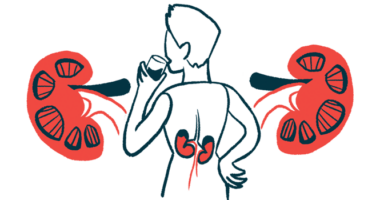FDA clears off-the-shelf CB-010 cell therapy for lupus nephritis trial
Therapy will also be evaluated for people with extrarenal lupus

The U.S. Food and Drug Administration (FDA) has cleared a clinical trial to evaluate the safety and preliminary effectiveness of CB-010, Caribou Biosciences’ investigational CAR T-cell therapy, for lupus that affects the kidneys and other organs.
The multicenter Phase 1 trial, dubbed GALLOP, should begin by the end of the year, according to the company.
CB-010 is being developed for people with lupus nephritis, the most common complication of lupus that’s marked by kidney damage and inflammation, along with extrarenal lupus, where other organs are affected.
Immune B-cells, which normally produce antibodies that help protect against infections, also factor in lupus by producing self-reactive antibodies, or autoantibodies, that attack healthy tissues. Lupus nephritis develops in about half of lupus patients and most fail to respond adequately to standard immunosuppressant treatments.
“Despite treatment advancements, fatigue, organ damage, and low health-related quality of life often remain lifelong characteristics of lupus,” Richard Lafayette, MD, a professor of medicine at Stanford Medicine Health Care, California, said in a company press release.
CAR T-cell therapies use immune T-cells isolated from patients or healthy donors that are modified to be equipped with a lab-made chimeric antigen receptor, or CAR.
In CB-010, the CAR is designed to target CD19, a protein on the surface of B-cells that drive lupus. It’s considered “off the shelf” because cells are collected from donors instead of patients and can be stored and used on demand. Also, cells from a single donor can be used to rapidly treat several patients at the same time.
“An allogeneic anti-CD19 CAR-T cell therapy from healthy donor T-cells has the potential to revolutionize lupus treatment, offering a readily available treatment for patients who need new therapeutic options,” Lafayette said.
CB-010 cells are also engineered to lack a protein called PD-1. This modification is made to reduce CAR-T cell exhaustion, a phenomenon whereby modified T-cells become dysfunctional and lose their ability to target and kill B-cells.
Starting the GALLOP trial
Caribou is testing CB-010 in patients with hard to treat B-cell non-Hodgkin lymphoma, a common type of blood cancer, who are participating in a Phase 1 clinical trial called ANTLER (NCT04637763).
“CB-010 has demonstrated encouraging initial safety and efficacy in patients with relapsed or refractory B-cell non-Hodgkin lymphoma, and we are excited to expand CB-010’s clinical development to include autoimmune diseases,” said Rachel Haurwitz, PhD, Caribou’s president and CEO. “By targeting CD19-positive B-cells involved in the production of autoantibodies and the perpetuation of the autoimmune response, our off-the-shelf CAR-T cell therapy CB-010 has the potential to greatly improve the standard of care for patients with lupus, a prevalent and severe autoimmune disease.”
In GALLOP, adult patients with lupus nephritis and extrarenal lupus will receive a single dose of CB-010 after completing a course of lymphodepletion, a treatment to wipe out a patient’s immune cells to make room for the edited ones, with two different chemotherapy agents.
Researchers will evaluate the therapy’s safety, pharmacokinetic profile, that is, how it moves into, through, and out of the body, and initial clinical activity.
Potential participants will undergo two screening procedures to ensure compatibility with donor cells. First, they will be tested for donor-specific antibodies, which are produced by the recipient’s immune system against the donated cells. The presence of these antibodies can lead to rejection and transplant failure.
Second, patients will be treated with CB-010 manufactured by a donor with partial HLA matching, a method used to ensure compatibility between the donor and recipient’s immune systems, to reduce the risk of rejection.
“The human leukocyte antigen, or HLA, system acts as our body’s identity card to know one’s ‘self’ from ‘not self.’ In stem cell transplants, it has been shown that a close HLA match between patients and donors significantly reduces the rejection of the therapy,” said Mehdi Hamadani, MD, professor of medicine at the Medical College of Wisconsin and investigator in the ongoing ANTLER study.
“This same logic can be applied to allogeneic CAR-T cells as well, so that the activity of the therapy persists long enough to target and destroy the diseased cells,” Hamadani said.







